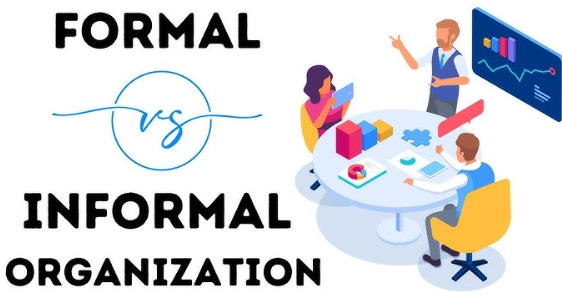Understanding of Contests and Competitions
Despite their apparent similarities, contests and competitions vary greatly. Unlike competitions, which are more inclusive and encompass a wider range of activities, contests are more focused on completing predetermined criteria or doing well in a specific area. There are additional differences in the goals, awards, and judging procedure between the two. When it comes to contests and competitions, the primary objective for both individuals and groups is to demonstrate their abilities and win.
Introduction of Contests and Competitions
Both contests and competitions are well-liked types of scheduled activities where participants compete against one another to accomplish a certain objective or take home a reward. Despite the frequent overlap in use, there are several significant distinctions between these phrases. We will examine the distinction between competitions and contests below:
Competitions
Contrarily, competition is a more general phrase that refers to a variety of activities in which people or teams compete against one another. Contrary to contests, competitions may include a variety of events, including business pitch competitions, academic decathlons, and sports. Instead of satisfying a predetermined set of criteria, competitors in a competition are evaluated based on their performance or result. For instance, the person who can score the most points or cross the finish line first wins a sporting competition.
Contests
A contest is a game or competition in which teams or individuals compete with one another in the hopes of winning a reward, which is usually cash or notoriety. Participants in a contest are evaluated based on a set of criteria, and the winner is chosen depending on who best fulfills or executes those criteria. Spelling bees, talent showcases, and writing competitions are a few types of contests. Both skill- and luck-based competitions are common, and participants are often required to abide by strict guidelines.
Table of Differences between Contest and Competition
| Characteristic | Contest | Competition |
|---|---|---|
| Definition | An event in which individuals or teams compete against each other to win a prize or recognition | Individuals or groups compete against one another for a specific goal, often with a winner determined by performance or skill. |
| Objective | To demonstrate skill, talent, or ability in a specific area | To achieve a specific goal, such as winning a game, earning a title, or securing a contract |
| Participants | Can involve individuals, teams, or groups | Can involve individuals, teams, organizations, or businesses |
| Criteria | Judged based on predetermined criteria, such as creativity, originality, or performance | Evaluated based on performance, results, or achievement of specific objectives |
| Reward | Prizes, awards, or recognition may be given to winners or participants | Winners may receive prizes, titles, contracts, or other rewards. |
| Focus | Emphasizes participation, enjoyment, and skill demonstration | Emphasizes winning, achievement, and success |
| Format | May involve various formats, such as art contests, talent contests, or cooking contests | May involve various formats, such as sports competitions, business competitions, or academic competitions |
| Judges | Usually involves judges or panels to evaluate entries or performances | May involve judges, referees, or impartial observers to ensure fairness |
| Duration | May be a one-time event or recurring | May be a one-time event, season-long, or ongoing |
| Outcome | Winners are determined based on subjective or objective criteria. | Winners are determined based on performance, scores, or results. |
Distinguishing Features of Contests and Competitions
Although they may seem to be identical at first, contests and competitions differ from one another due to certain features. Participants in a contest often display their abilities or skills in a particular field, such as athletics, music, or the arts. The evaluation of submissions by judges or a panel of experts using preset criteria often centers on subjective judgment. A contest places a strong focus on individual creativity and performance, with participants trying to make an impression on the judges.

Goals and Objectives of Contests and Competitions
In order to accomplish a certain purpose or result, participants in competition often compete against one another. Criteria like speed, precision, or efficiency are often used as the central focus. The goal of competition is to outperform competitors and provide the greatest outcomes while adhering to certain guidelines or regulations. Objective criteria, such as scores, rankings, or time measures, are used to select the winner.
Key Differences of Contests and Competitions
Goal: The goal is one of the primary distinctions between competitions and contests. While the goal of a competition is to outperform other participants and place first overall, the emphasis of a contest is on satisfying a particular set of criteria or performing a task in the best possible manner. Unlike a competition, where the primary objective is to win, a contest often has a set objective or standard that participants must satisfy.
Judging Process of Contests and Competitions
Judging: The method of judging is another important distinction between contests and competitions. Judges in contests are usually subject-matter specialists who utilize their knowledge to assess the performance of participants. They could grade and rank the participants using a rubric or other set of rules. A panel of judges from various backgrounds or sectors frequently evaluates competition participants, and the judging process may include multiple rounds. The nature of the event may also affect the judging criteria used in a competition.
Awards and Prizes of Contests and Competitions
Prizes: Winners of competitions and contests are entitled to awards, although the specific kind of reward may vary. The prize in a contest is usually a preset item, such as money, a trophy, or a gift card. The prize for winning a competition may take several forms, ranging from cash and recognition to exclusive access to future chances like job offers or scholarships.



